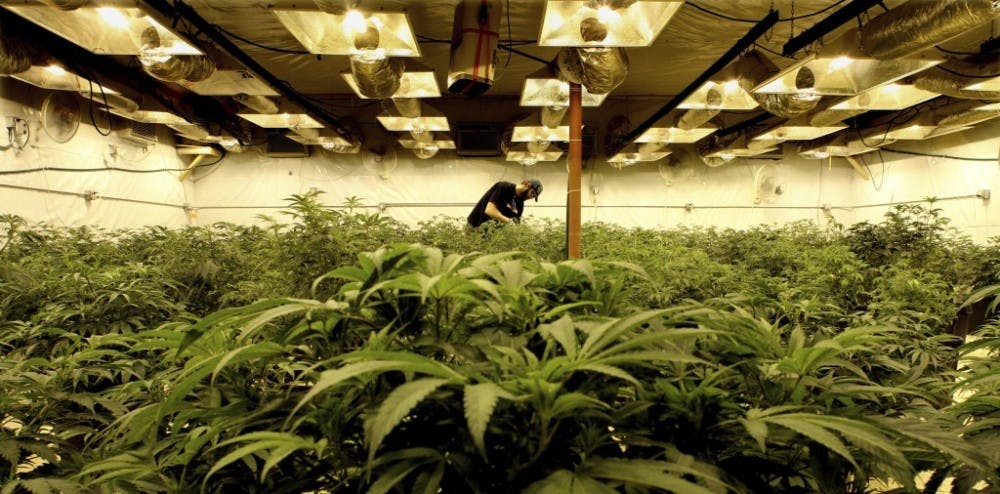Note: By the time this article ran, the NC General Assembly gave the legislation an "unfavorable report." This means that similar legislation will be marked as being "unfavorable" and this will be made known to the representatives by the clerk and allows them the opportunity to vote to accept the report and kill the bill. This makes it unlikely for any further medical marijuana legislation to be considered in this legislative session.
It’s a form of treatment that people have been using for centuries, and a bill was recently filed to legalize its use as medical treatment in North Carolina.
That remedy is marijuana.
Earlier this month, N.C. Rep. Kelly Alexander, D-Mecklenburg, presented a bill that would protect “qualified patients” from prosecution if they were in possession of prescribed medicinal marijuana. Federal law prohibits the use of marijuana, but states are not required enforce it.
If the bill passes, students at North Carolina colleges, including Elon, may still face consequences if found in possession of medical marijuana.
“Based on the information I have received from universities in states that have legalized marijuana, universities are still required to comply with federal guidelines,” said Whitney Gregory, director of student conduct at Elon. “This means any possession or use of substances considered illegal under federal law would be prohibited on campus.”
Medical marijuana is currently illegal in North Carolina, but the bill argues legalization might promote the welfare of citizens with cancer, glaucoma, HIV/AIDS and other diagnoses.
“Modern medical research has discovered beneficial uses for cannabis in treating or alleviating pain, nausea and other symptoms associated with certain debilitating medical conditions,” the bill says.
Alexander proposed a similar bill in 2011, and in 2008 a House joint resolution to investigate medical marijuana was supported by former U.S. Surgeon General Joycelyn Elders, who came to speak to the N.C. General Assembly. None of the bills passed.
A poll conducted by Public Policy Polling found 58 percent of state residents support the legalization of medical marijuana, but opponents of the bill fear it will increase recreational use and perhaps lead to full legalization. Elon’s campus seems to be similarly split.
“Some people need it and it’s necessary,” said sophomore Courtney Vaughn. “Marijuana has only negative connotations with it. It’s time that this country realizes that it’s not only negative and it’s necessary for some people.”
But freshman Casey Briglia said medical marijuana might do more harm than good.
“I don’t think it should be legalized because I think it would be abused,” she said.
In other states, some college students have found pain relief through medical marijuana. Igor Camilo, a student at Los Angeles City College in California, where medicinal cannabis is legal, uses the drug to treat chronic neck pain.
“When I don’t use medical marijuana, I have to go through the day very uncomfortably; often moving or standing in certain positions or directions is incredibly difficult,” Camilo said. “I often can't sleep due to the discomfort with out the marijuana.”
Medicinal marijuana is currently legal in 18 states, and in 2012, Washington and Colorado both made possession of an ounce of marijuana legal for anyone 21 and older.
The Obama administration has said that it will not target medical marijuana dispensaries in states where they are legal, but federal officials have shut down cannabis pharmacies in states including Washington, Colorado and California, proving the controversial nature of the treatment.
Still, many dispensaries thrive nationwide.
“In California, there are doctors and offices who specialize in evaluating patients and giving medical marijuana recommendations,” Camilo said. “I went in to one, and after filling out some basic forms, I met with a physician who talked with me about the specifics of my condition he determined that I was a person who could benefit from medical marijuana and gave me my recommendation.”
But some fear “qualified patients” able to purchase medical marijuana may abuse their privileges.
“I feel like what would happen with prescription pills would happen with weed,” said freshman Stephen Harris. “People buy prescription pills and sell them to other people.”


